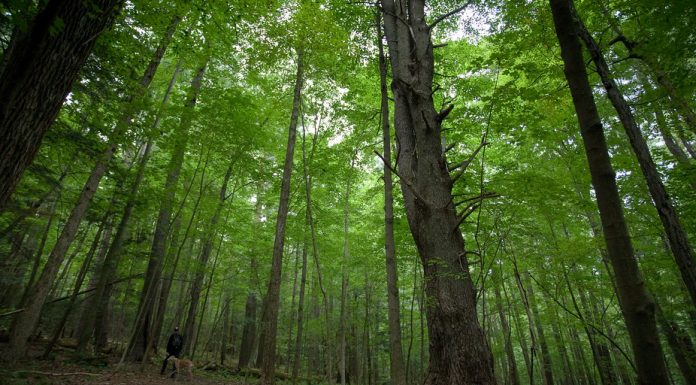California‘s cap-and-trade program transfers wealth from manufacturers and oil companies to environmentalists, yet it has not demonstrated any ability to reduce carbon dioxide in the atmosphere.
The program relies on selling “polluters” carbon credits that give them the right to emit carbon dioxide—a naturally occurring gas in the atmosphere.
A recent investigation by the MIT Technology Review and ProPublica shows the cap-and-trade program’s inherent fraudulence and admitted that it actually “may have fueled climate change.”
The Massachusetts Audubon Society, a non-profit preservation group that owns 36,500 acres in the state, used California’s forest offset program, a part of the cap-and-trade system, to net $6 million without providing any tangible benefit to the environment.
The California Air Resources Board manages the forest offset program, which grants landowners, like Mass Audubon, new carbon credits in accordance with the number of trees that they pledge not to cut down.
In order to qualify for the forest offset program, Mass Audubon threatened to log 9,700 acres of its preserved land.
Although the threat was empty because the group’s documents explicitly prohibit logging except for forest management purposes, the ARB offered them 600,000 carbon credits to preserve the land for 100 years.
Mass Audubon turned around and sold the 600,000 carbon credits—each allowing 1 ton of carbon dioxide emission—on the open market to oil and gas companies, netting $6 million, according to the group’s regional scientist Tom Lautzenheiser.
Mass Audubon’s credit scheme represents standard practice, and its 600,000 credits are a fraction of the tens of millions of allowances that the ARB grants every year.
CarbonPlan, a non-profit environmentalist group, analyzed California ARB’s forest offset program. Researchers found that almost all landowners who threatened to cut down trees in order to earn carbon credits had no history of logging or were ideologically opposed to the practice.
“The nearly universal pattern we see in the data” is that “those projects are not delivering real climate benefits,” said Danny Cullenward, policy director at CarbonPlan, who co-authored the study.
ARB spokesman Dave Clegern arguing that the agency’s forest offset program cannot realistically and practically “read the mind of each project developer” to determine whether their applications will reduce carbon dioxide emissions.
The agency could have visited Mass Audubon’s website, where the non-profit states that its goal is to “serve as a leader and a catalyst for conservation, by acting directly to protect the nature of Massachusetts…”
Whether the program achieves its stated goal seems to matter little to the bureaucrats who administer it and the environmentalists who extort manufacturers and producers with their carbon credits.
Lautzenheiser told ProPublica that Mass Audubon “would not have” enrolled in the program “if we felt like the benefits to the atmosphere weren’t real.”
When asked if Mass Audubon planned to heavily log 9,700 acres of its conservation land, he dodged the question.
“We don’t agree with the premise of your question,” Lautzenheiser said. “We are confident that our project provides a net carbon benefit to the atmosphere…”
“Mass Audubon is participating in this program in good faith, has implemented a project meeting all relevant standards, and through the project has reinforced its commitment to the long-term stewardship of enrolled forestlands,” he said.
Mass Audubon’s participation in the forest offset program means that so-called polluters can emit more carbon dioxide.
If the group had instead simply preserved the land as it intended, the 600,000 carbon credits never would have been created and sold.

